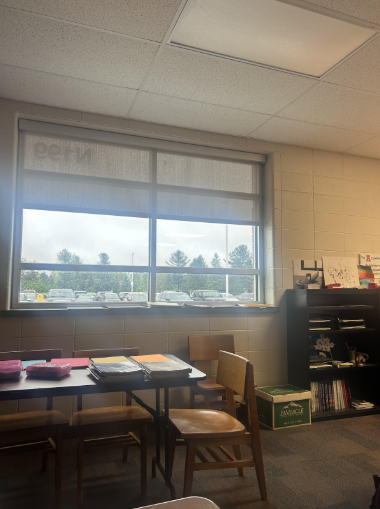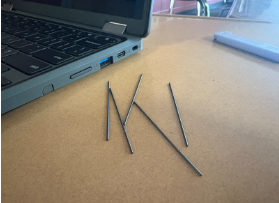The Yemen War: Explained
The Civil War in Yemen been going on since March 22, 2015, and in that time one thing has been made clear: the conflict in Yemen is being used as a proxy for tensions between Saudi Arabia and Iran—or more generally, tensions between Sunni and Shia Islamic faith. This is the war in Yemen explained, and why Arrowhead—as well as the rest of the world—should care.
In late 2011, an uprising in Yemen by protestors of the Yemeni Dictator, Ali Abdullah Saleh, forced him to leave the country to his deputy, Abdrabbuh Mansour Hadi. Because Saleh’s departure was so sudden, Hadi had trouble maintaining control of the country.
In 2014, a man named Abdul-Malik Badreddin al-Houthi led a Rebel Movement against Hadi, taking advantage of his vulnerable leadership. The Houthi-led rebels seized control of most of Northern Yemen. Hadi was forced to flee abroad into exile, just like his predecessor.
In March of 2015, Saudi Arabia, with the help of the United Nations, France, and the United States, began airstrikes against the Houthi Rebels, claiming that they wanted to restore Hadi’s government. Saudi Arabia believes that the Houthi Rebels are receiving both logistical and military support from Iran. Iran denies Saudi Arabia’s claim.
This is important because Iran and Saudi Arabia have a famously hostile relationship, sprouting from their fundamental religious beliefs. Saudi Arabia is made up of mostly Sunni Muslims, whereas Iran is made up mostly of Shia Muslims. Historically, the Sunni and Shia rivalry has dated back into the first century, and the argument of who the true descendents of the prophet Muhammad are.
So Iran is aiding the Houthi rebels in order to gain more control over northern Yemen, which borders their rival Saudi Arabia, and Saudi Arabia is attacking the Houthi rebels to prevent Iran from succeeding. This is where the war officially begins.
Because of the rivalry between Iran and Saudi Arabia, the country of Yemen has become the battleground that hosts their conflicts. Not only are there constant airstrikes, but the people of Yemen are also suffering other humanitarian conflicts, like poverty and famine, as it is one of the poorest countries in the middle east. The UN calls this conflict “the world’s worst humanitarian crisis,” but that’s not the only problem. The conflict in Yemen is also known to most media resources as “the forgotten war,” because as Saudi Arabia’s airstrikes originally targeted Houthi rebels, they quickly began targeting civilians, however this problem is rarely addressed by world leaders. Homes have been destroyed all over the country, and the people who are really responsible, like Saudi Arabia and Iran, face no consequences to this brutality, according to Independent News.
The real culprits behind why the war in Yemen has lasted so long is a lot less complicated than one would think. Basically, Saudi Arabia and Iran hate each other, USA and Iran dislike each other, and the USA and Saudi Arabia have been allies for generations. Since the US is allied with Saudi Arabia, and Saudi Arabia is rivals with Iran, the US and all of the US’s allies are against Iran, and therefore, against the Houthi Rebels, despite the corruption of Yemen’s government. In all honesty, the war in Yemen would not have escalated to this level of crisis if it weren’t for the involvement of Saudi Arabia, Iran, and the US. This is according to Common Dreams.
As previously stated, Saudi Arabia & Iran have been rivals since basically the beginning of time, dating back to their countries’ religious beliefs. Saudi Arabia is made up mostly of Sunni Muslims, whereas Iran is mostly Shia Muslims. It is a well-known fact that Sunni Muslims don’t like Shia Muslims, and vice versa. If Saudi Arabia’s claims that Iran is backing the Houthi Rebels, then it wouldn’t be a surprise that the crown prince has authorized airstrikes against the Houthi rebels.
Ever since April of 1980, when President Carter cut diplomatic relations with Iran, the US and Iran have had a strained relationship. Since Iran is closely allied with Iraq, and the US was at war with Iraq from 2003-2011, Iran and the US are civil, but not exactly friends.
Saudi Arabia & the US have been allies since the early 1930s, and the kingdom of Saudi Arabia remains one of the US’s closest allies to this day. With SA’s wealthy and ever-growing economy, as well as their never-ending oil supply, it’s no wonder that the US wants to remain on good terms with them. So if Saudi Arabia is attacking the Rebels in Yemen, the US will help them.
So what does all this mean for Yemen? Well the explanation really comes down to who is really responsible. The Yemen Rebels have the support of Iran, Saudi Arabia is rivals with Iran, and the US is allies with Saudi Arabia. Iran is helping the Yemen rebels in order to indirectly take control of Northern Yemen, which borders Saudi Arabia. Saudi Arabia attacks the Yemeni Rebels in order to indirectly attack Iran and prevent them from seizing control of Northern Yemen, and the US is helping Saudi Arabia because we like to get involved in a lot of things, and Saudi Arabia is our close ally.
Why should we care? Because of the constant airstrikes in Yemen, the people of Yemen are suffering more than ever before. As an already poor country, the malnourishment of civilians who aren’t receiving the help they need is becoming critical.
“The conflict in Yemen should be of concern to Americans not only due to the humanitarian cost which has been estimated as high as 60,000 Yemeni lives lost but also the risk of increased terrorism that instability brings to the region. This coupled with the fact that nations like Saudi Arabia and Iran are actively involved on opposing sides make this issue one that has the potential to spiral into a much larger regional or perhaps intentional conflict,” says Social Studies teacher Christopher Herriot in an emailed response on February 6, 2019.
Fortunately, the US government has recently limited our involvement in Saudi Arabia’s airstrikes, and the awareness of the suffering Yemeni people is increasing greatly. It is unfair for the innocent people in Yemen to suffer because of the rivalry of more powerful countries, who bear none of the consequences.
This humanitarian crisis, coupled with the recent death of American journalist Jamal Khashoggi at the hands of Saudi Arabia’s leaders, is breaking the bond between the US and Saudi Arabia that has been so strong for decades. In addition, the US is beginning to produce its own oil, meaning it will no longer be so dependent on the oil from Saudi Arabia.
It is imperative that Arrowhead students stay informed on topics such as these, because while it may not directly affect the people of Hartland, Wisconsin and surrounding areas, it spreads a global awareness to the injustices of the world, and that kind of awareness sparks change. The ‘Forgotten War’ must not be forgotten.









